The housing affordability situation in New Zealand is rapidly improving, unlike Australia.
Turning to the rental market first, TradeMe reported a 3.1% annual decline in New Zealand asking rents in May, with all major markets experiencing declines.
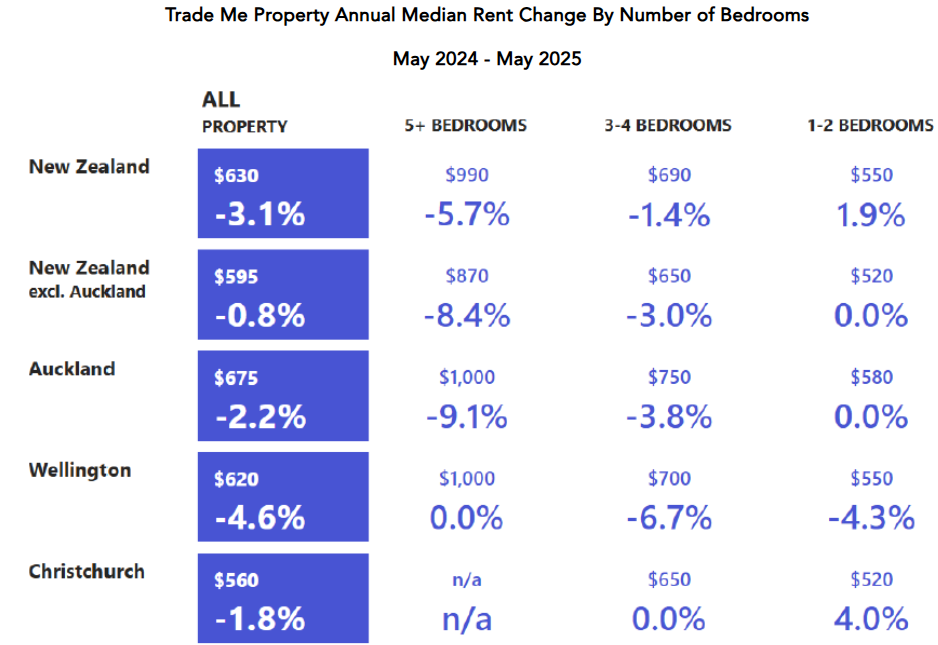
Source: Trade Me
Stats NZ and the Ministry of Business, Innovation and Employment (MBIE) also reported a sharp decline in national rental growth, as illustrated below by Cotality.
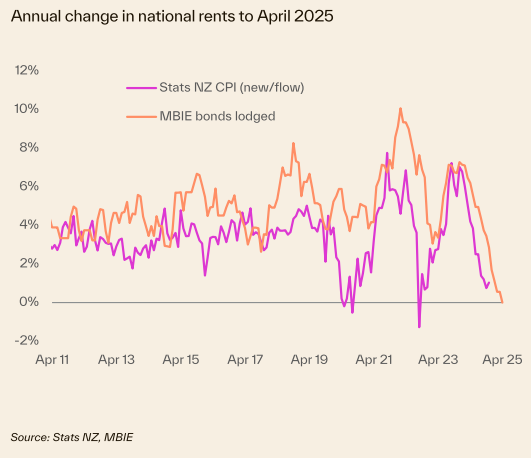
A key driver of the falling rental growth is the sharp decline in net overseas migration, which fell to a 2½ year low in May.
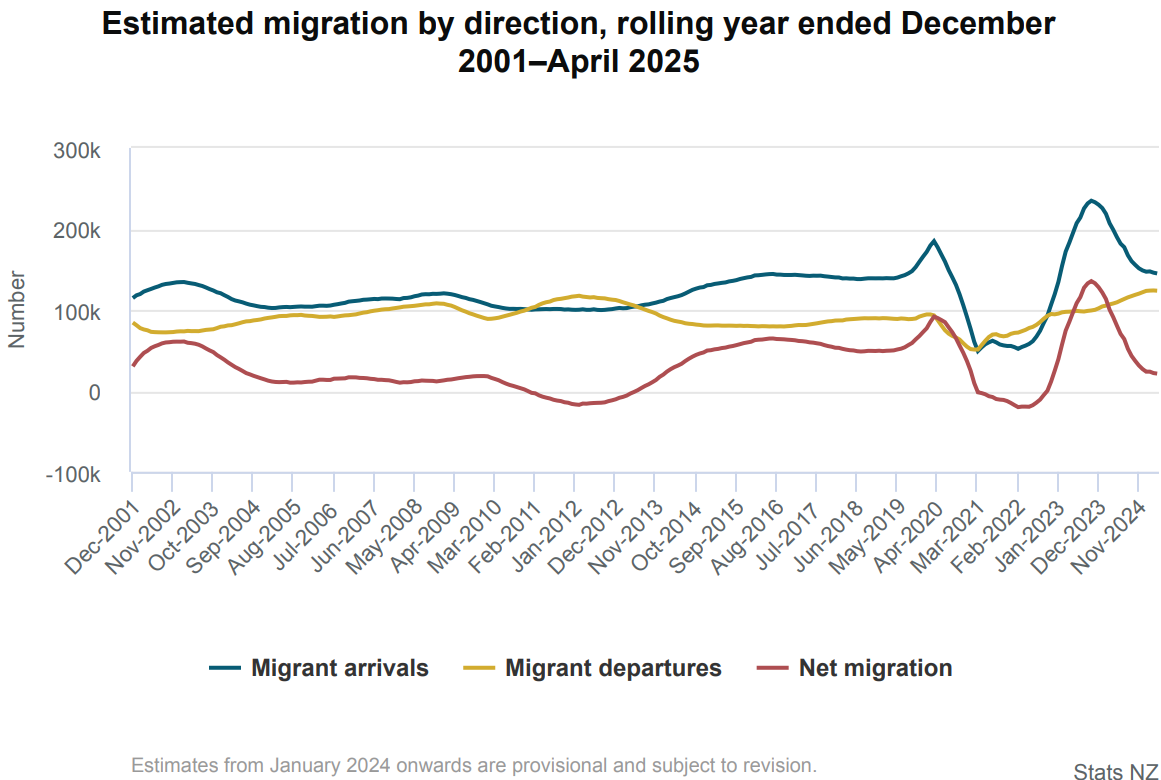
New Zealand home prices are also rapidly becoming more affordable.
The Real Estate Institute of New Zealand’s (REINZ) house price index, presented below by Justin Fabo from Antipodean Macro, shows that real home prices have fallen back to late 2019 levels.
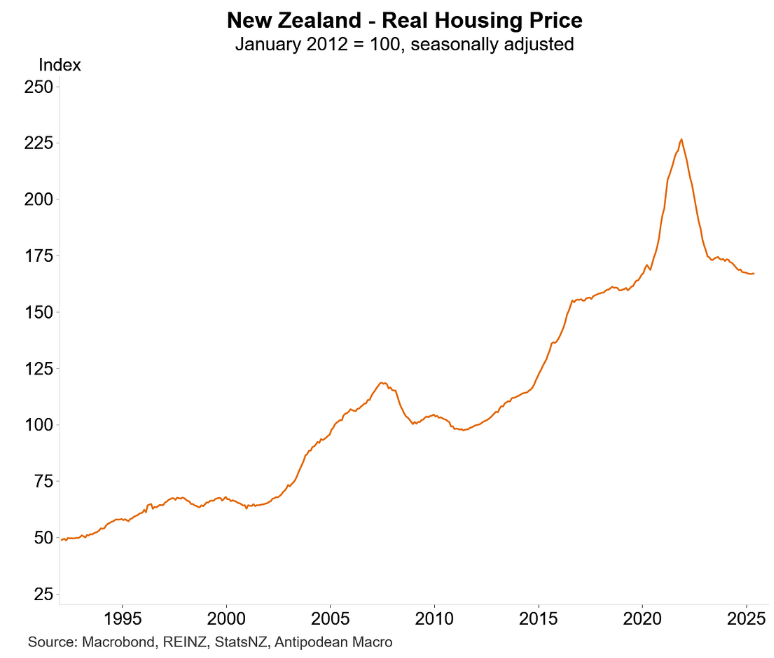
In a similar vein, Cotality’s dwelling value index reported a 16.3% nominal decline from its peak (more in real terms), with all main centres recording severe declines.
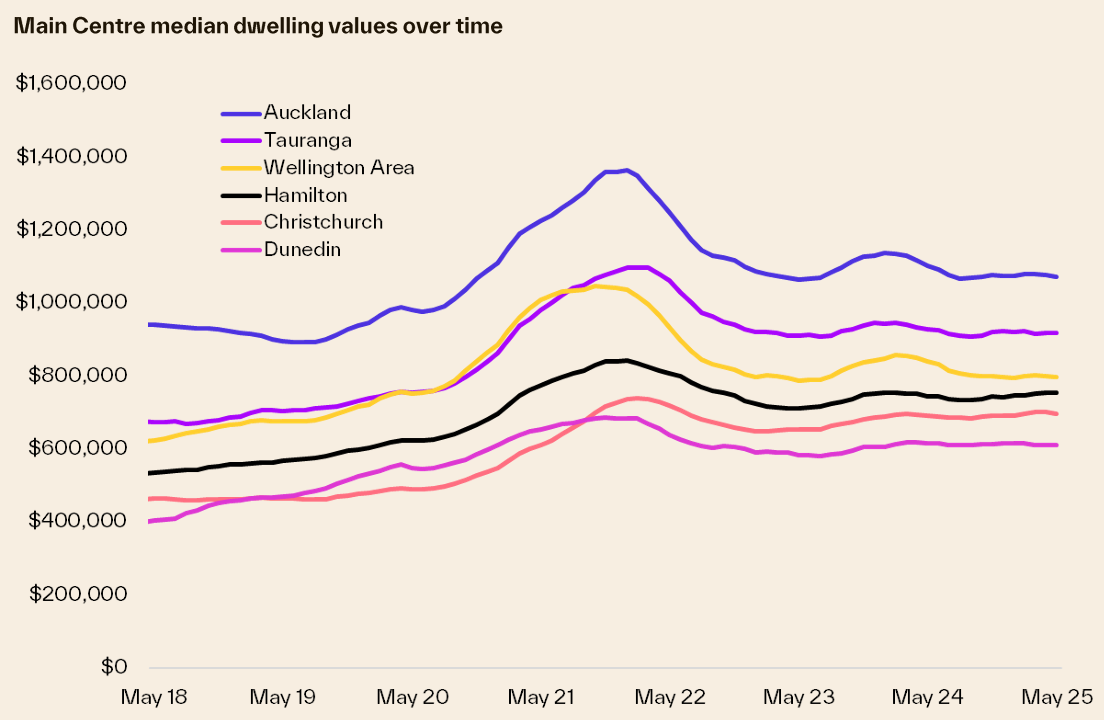
Source: Cotality
Meanwhile, average mortgage rates have fallen significantly in New Zealand following the Reserve Bank’s 2.25% of cuts to the official cash rate.
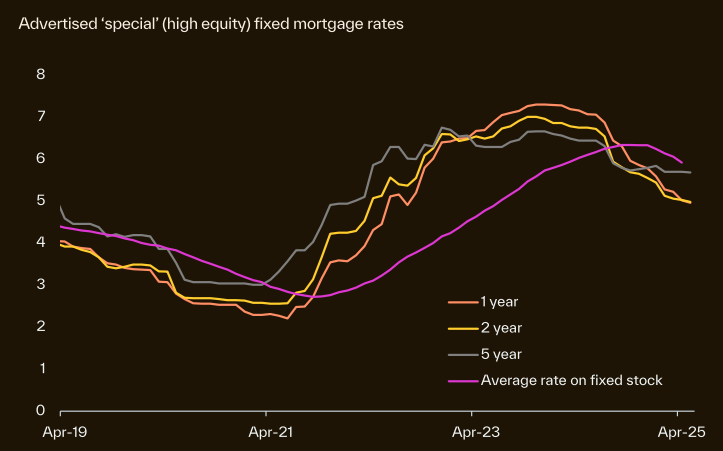
The combination of lower home prices and mortgage rates has meant that mortgage repayment affordability has improved significantly, with the percentage of household income required to service a mortgage on the median-priced home falling to around 35% from 50%.
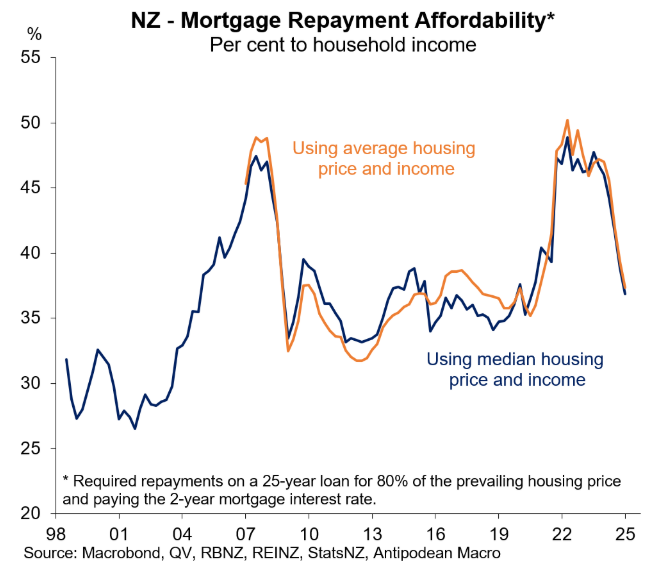
The contrast with Australia cannot be more stark. At the end of 2024, Australia’s housing affordability—both to purchase and rent—was tracking at its worst level in history.
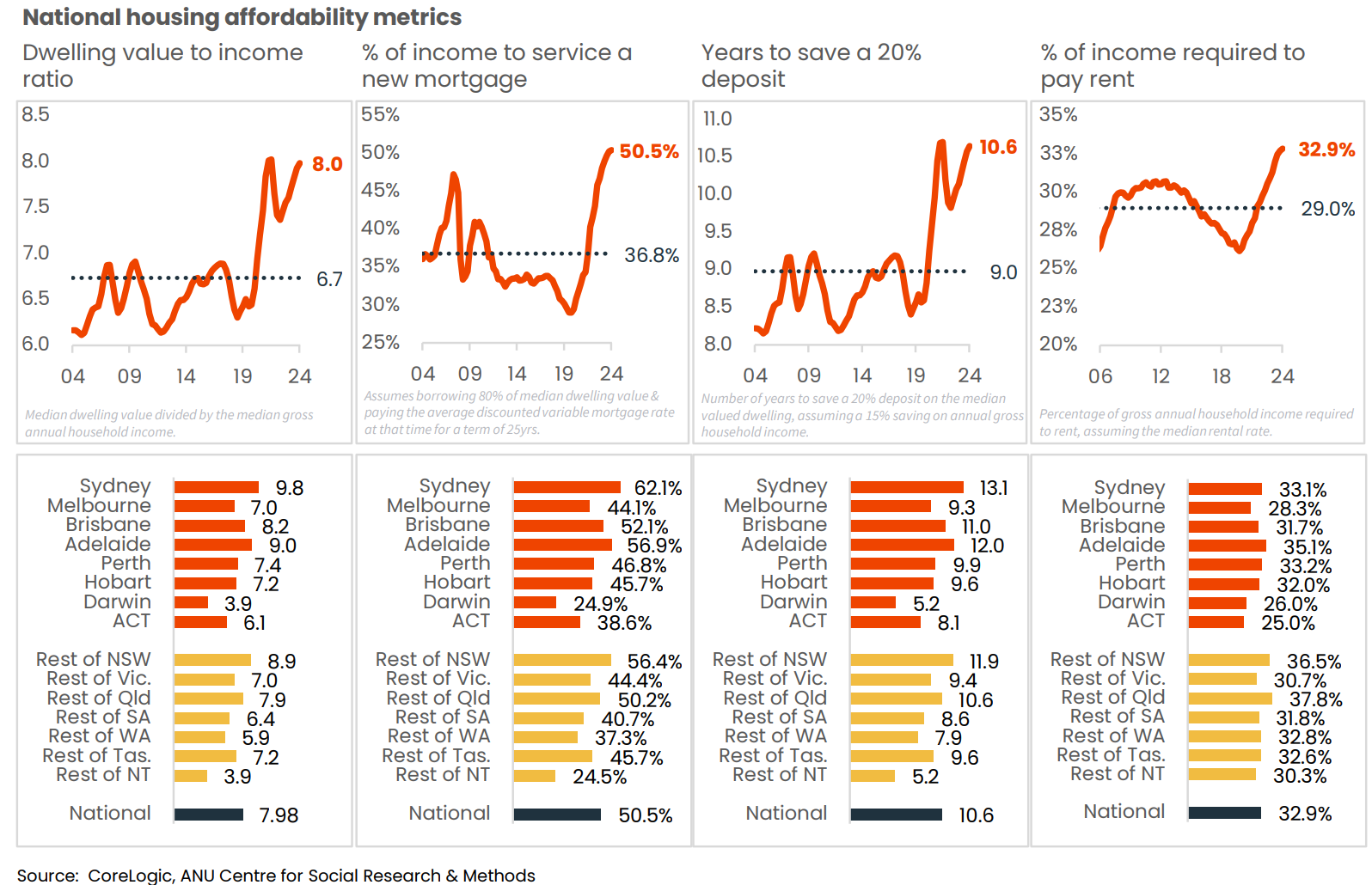
While two 0.25% interest rate cuts from the Reserve Bank of Australia have improved mortgage affordability slightly, they have been partly offset by rising home prices.
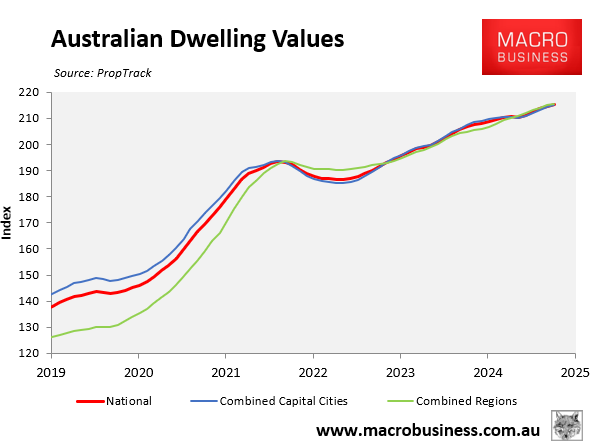
Rents also continue to grow, albeit the pace of growth has slowed.
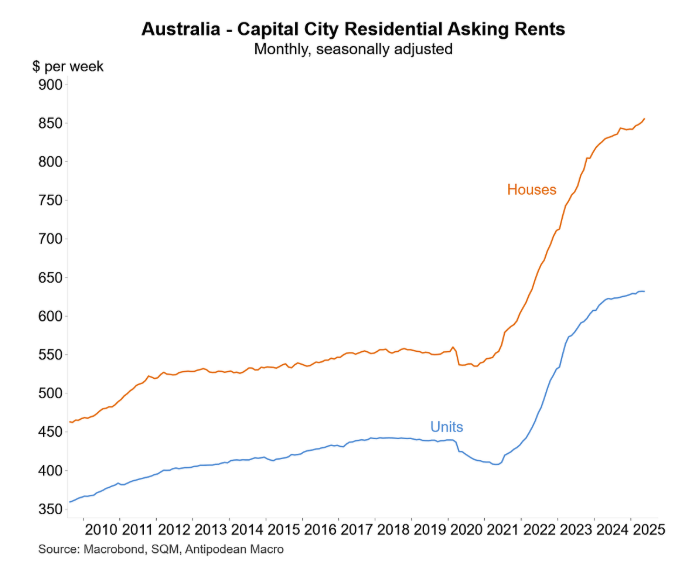
Perhaps the biggest contrast between Australia and New Zeaand can be seen through the Demographia International Housing Affordability Survey.
The 2022 Demographia Housing Affordability Survey ranked New Zealand as having one of the world’s most expensive housing markets, with a median multiple of 11.2 in 2021. This was well above Australia’s median multiple of 8.0 in 2021.

Source: 2022 Demographia Housing Affordability Survey
However, the steep decline in home prices reduced New Zealand’s median multiple to 7.7 in 2024. By contrast, Australia’s median multipe rose to 9.7 in 2024.
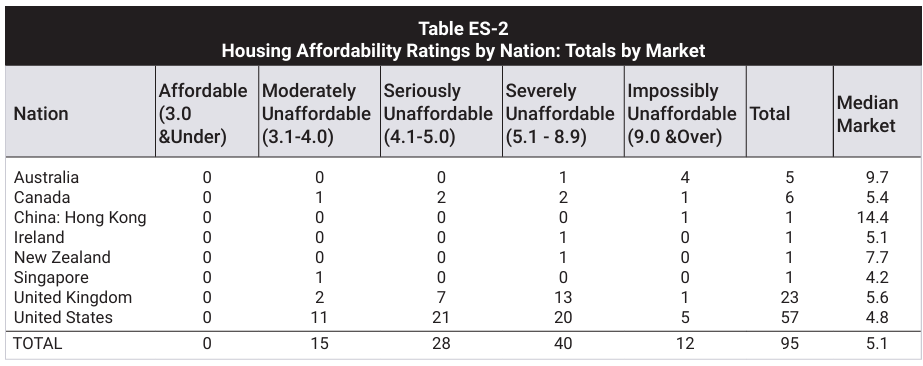
Source: 2025 Demographia Housing Affordability Survey
The difference is that the New Zealand government let the housing market deflate and become more affordable.
By contrast, Australia’s politicians have actively supported home prices through demand-side stimulatory policies, such as the Albanese government’s 5% deposit scheme for first home buyers, expansion of the Help-to-Buy shared equity scheme, and changes to lending rules that preclude banks from including student debts in loan serviceability assessments.
Australia has actively thrown demand-side fuel on the housing bonfire, whereas New Zealand has not.

